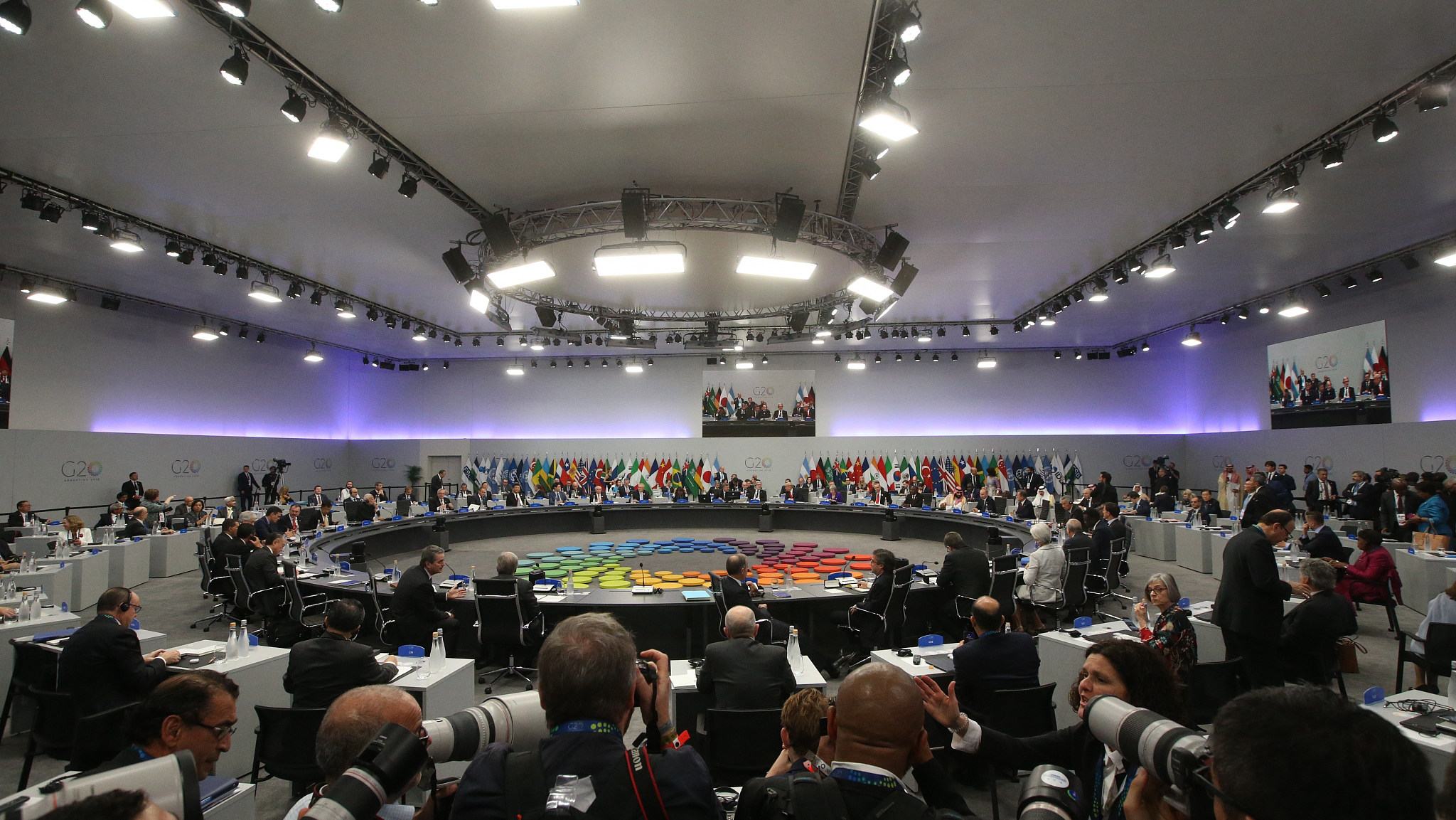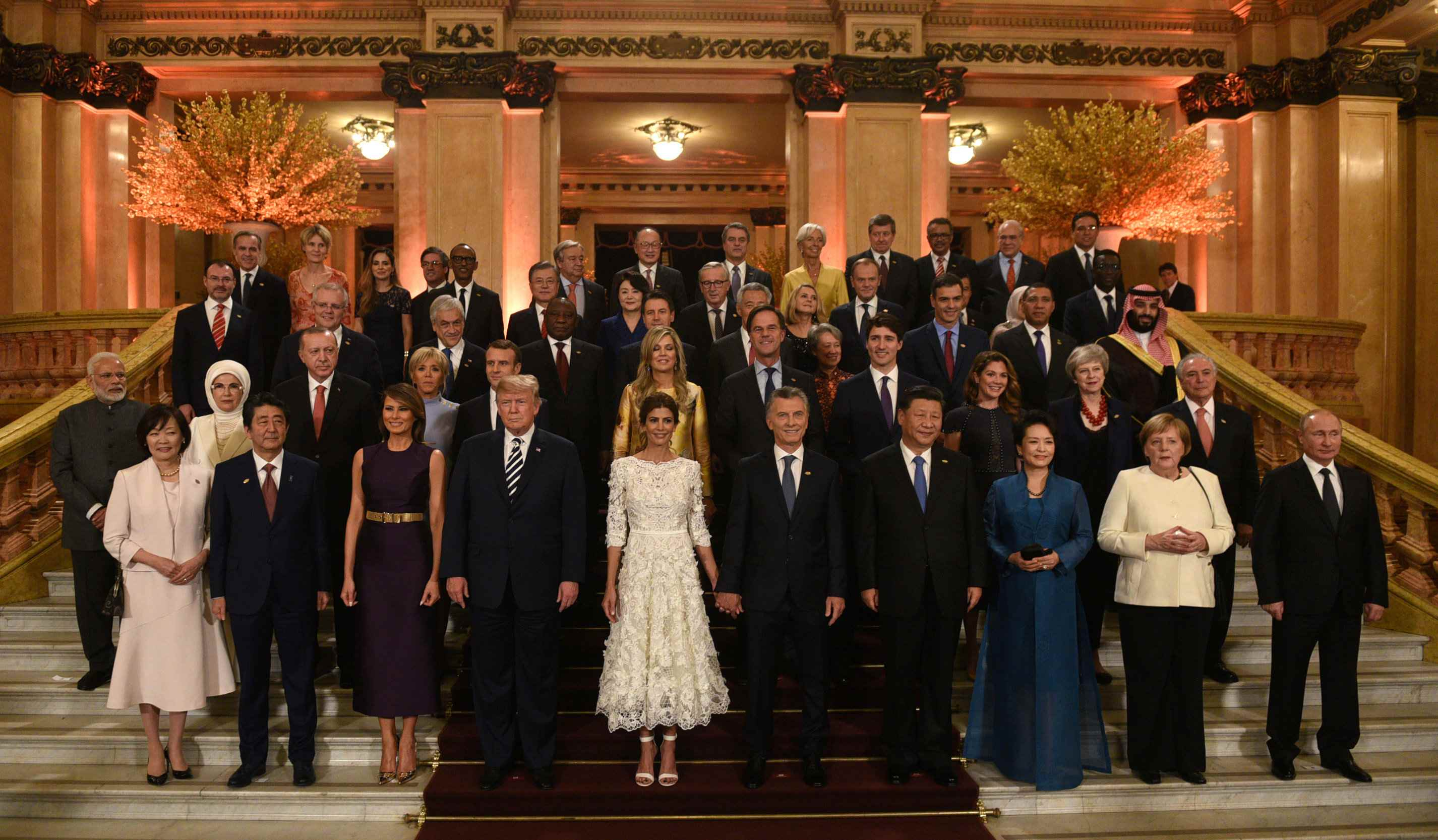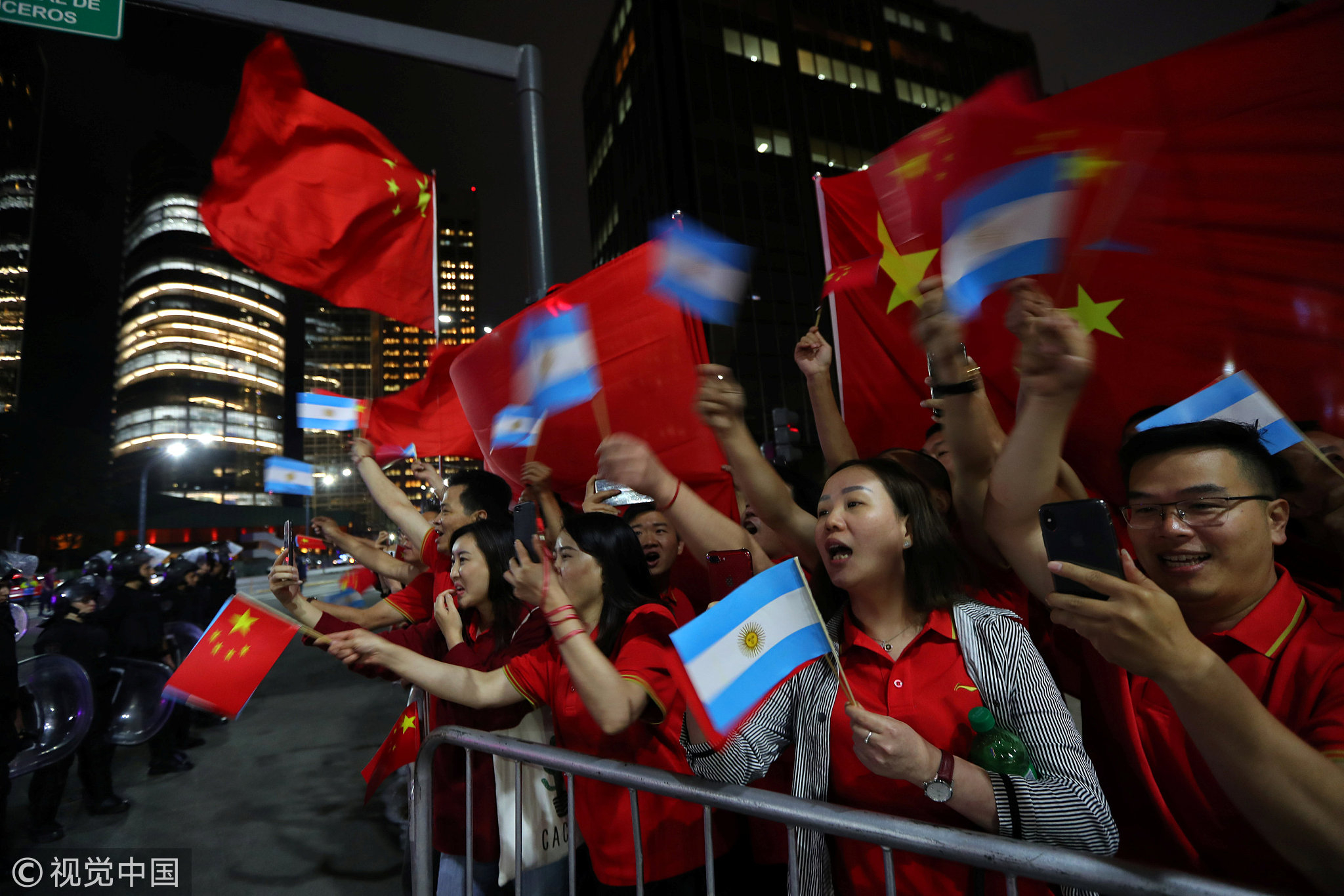Opinion: China's grand G20 vision for global development

Editor's note:Jiang Shixue is a professor at the Institute of Global Studies at Shanghai University. The article reflects the author's opinion, and not necessarily the views of CGTN.
As the recent APEC summit failed to produce a joint statement due to different positions on many issues, the world has been wondering whether the G20 summit would follow suit.
As an important member of the G20, China is always in the limelight of the world stage. Therefore, what Chinese leaders say at the world forum is closely watched by the international community.
On November 30, Chinese President Xi Jinping delivered an important speech at the first session of the summit. His speech can be summarized as one judgment, two promises, three “communities” and four proposals.

Leaders at the G20 summit and their partners pose for a photo at the Colon Theatre during a gala in Buenos Aires, Argentina, November 30, 2018. /Reuters Photo
The judgment President Xi made was about the world economic situation today. He said, although the world economy has recovered from the international financial crisis a decade ago, its negative impact on the root level is still there, and the process of transforming the growth mechanism is unfinished yet.
He also noted that, while scientific, technological and industrial revolutions have generated significant changes to the world, all kinds of risks are accumulating as the gap of inequality between the haves and have-nots is widening and social problems are getting worse.
This judgment correctly reflects the reality of the world economy, and, hopefully, these above-mentioned challenges can be at the top of the agenda of the G20 in the next decade.
President Xi made two promises in his speech: To eliminate China's absolute poverty at the current poverty line by 2020, and to keep on opening up to the outside world.
Indeed, the living standards of the majority of the Chinese population have been greatly raised over the past four decades. But there are still many people who are suffering from poverty. Needless to say, this promise, if realized, would contribute to the implementation of the UN's 2030 sustainable development goal given China's large population.
The second promise of President Xi is all the more relevant today as some people are worried about the possibility that China will retreat from its policy of reform and opening to the outside. This concern should be defused now that Xi has reiterated China's position many times in different platforms.

Chinese in Argentina cheer as China's President Xi Jinping arrives at a hotel ahead of the G20 summit in Buenos Aires on November 29, 2018. /VCG Photo
In his speech, the president mentioned three “communities”: a community of interests, a community of responsibility, and a community of shared future.
A community of interests means cooperation between/among nations, rich or poor, big or small, should be based on a win-win philosophy. A community of responsibility needs to respect the principle of common but different responsibility. A community of shared future includes peace, security, common prosperity, cultural harmony and environmental sustainability.
In a sense, these three types of “communities” can guide the development of international relations towards the future.
The G20 is now in its second decade of dialogue and cooperation. How to make the platform more relevant to global governance and world economic growth is an important question for every member.
In his speech, President Xi put forward the following four proposals: to protect the multilateral system, to strengthen macroeconomic coordination, to stimulate economic growth by pushing forward innovation and to promote inclusive growth through win-win cooperation.
He did not mention the trade war between the U.S. and its partners, but the implicit meaning is there. Reading between the lines of his speech, it can be understood that to resolve any trade disputes, both sides need to make compromises. Indeed, it takes two to tangle.
(If you want to contribute and have specific expertise, please contact us at opinions@cgtn.com.)
